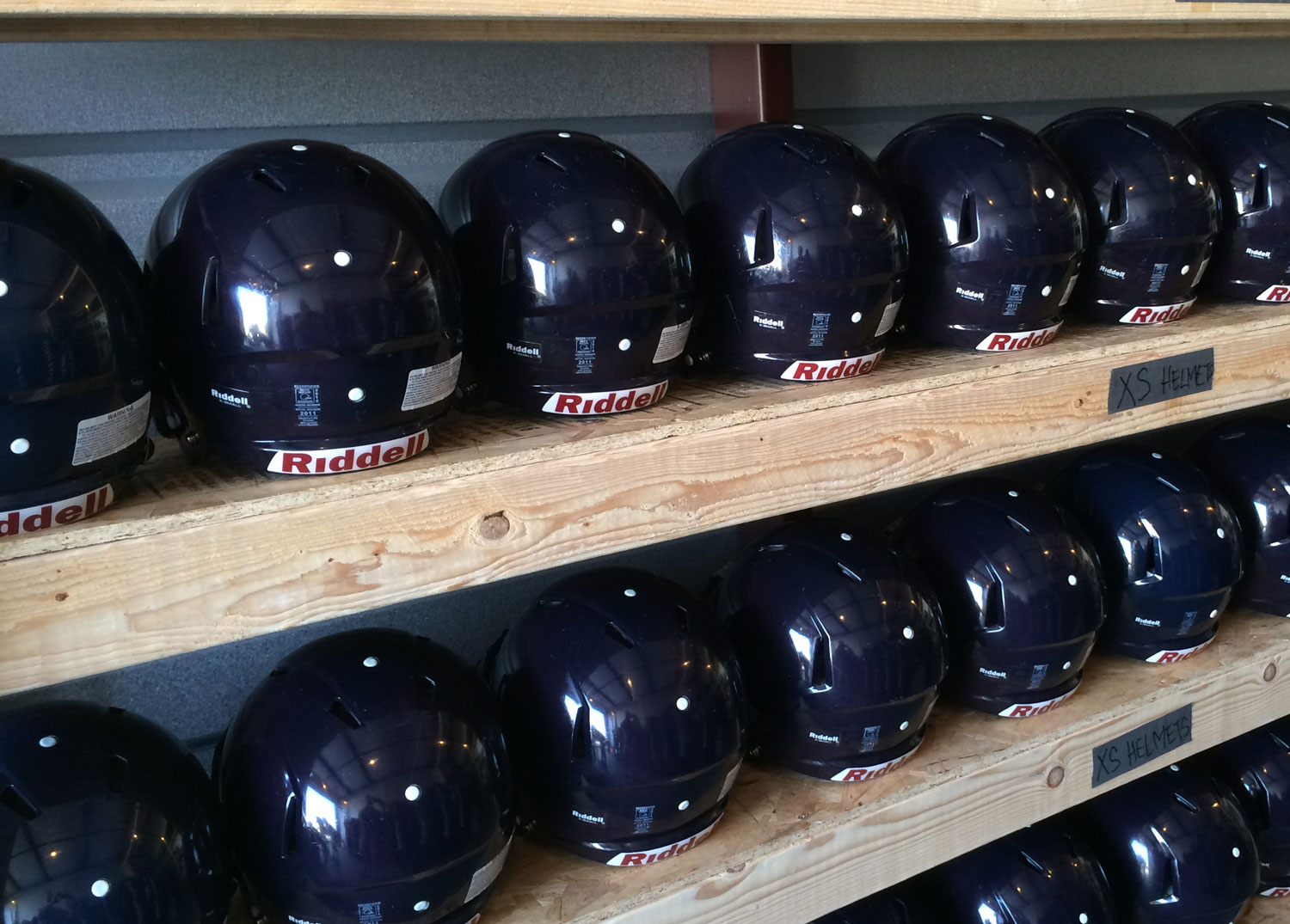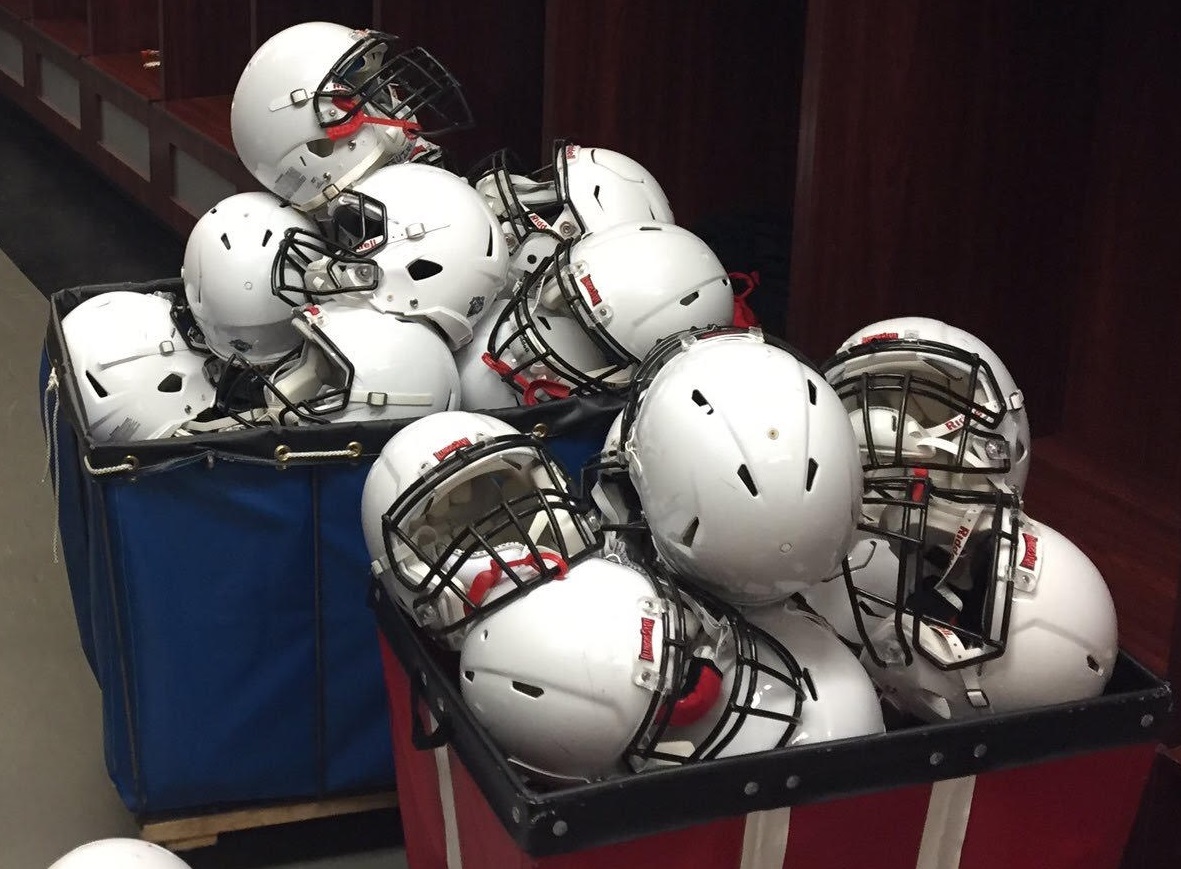It's that time of year to start preparing for your helmet football reconditioning. Last year, COVID has wreaked havoc on parts and helmet supply chains, so don't get caught waiting until June to start thinking about your helmets. Plan and prepare now is our best recommendation.

But for reconditioners, the two dozen shops around the nation that make sure the helmets sent to them are prepared for the hits, the season this year has stretched from the normal busy times of early winter and late spring to now early fall—a troubling development.
Owners and operators of reconditioning businesses shied away from talking with us on the record, not wanting to alienate customers. One business owner, who we agreed not to identify by name, talked with us about the issue.
Don't Wait to Send in Helmets
“There is always a certain amount of stragglers and late coming orders,” we were told. “When we get calls asking for helmets to be cared for close to the season, we tell them not to wait a week or two weeks before the start of the season—or even a month before the start of the season—because even then you are pushing it.
“We know there are always exceptions—life happens.
“But we will charge a rush fee.”
Football helmets must be reconditioned at least after the second year of use and every other season after to keep the manufacturers’ warranties and meet minimum NOCSAE (National Operating Committee on Standards for Athletic Equipment) requirements.
When a reconditioner receives a load of football helmets, or a single helmet, for reconditioning, a long process begins. Each helmet must be inventoried, disassembled, examined, evaluated, cleaned, repainted, reassembled with some new components, and prepared for shipping. Additionally, a certain percentage must undergo specific testing to determine if the helmet does what it was designed to do—offer protection to a football player’s head.
This takes time. Lots of time.
Slim Window for Reconditioning
“We are doing equipment later than normal,” our reconditioning friend told us. “Sometimes this is due to other forces, not just lateness.”
Other forces? Sam Trusner, the intrepid Office Manager for the AEMA (Athletic Equipment Managers Association), explains.
“For colleges, football is a near year-round sport now. Equipment managers must prepare for Spring ball and cannot send helmets out for reconditioning until that is complete. Then, summer workouts and the pre-season begins. There is a small window for reconditioning in there,” Sam expounds.
“For high schools, helmets should be sent out immediately after the season is done.”
It seems, reconditioners say, that the season for reconditioning helmets and other equipment is being stretched to the limits—and beyond.
“One of the biggest needs we talked about (at NAERA) was the need to educate the general public. There is a process to reconditioning a football helmet. It’s not a fast process. You cannot drop off a helmet one day and pick it up the next.”
Do Not Rush Reconditioning
“This is something you cannot rush,” our source said. “We all need to make sure to get it right. Remember, the helmet is going onto someone’s head to help protect, in most cases, a kid—someone’s kid.”
Reconditioners say the shortened off-season, the immediate gratification culture, and a lack of education about the reconditioning all tie into helmets being sent in late.
“We live in a society of immediate gratification,” the reconditioner said. “The largest need in our industry is to educate everyone of the process. Plus, helmets are so different today than they were before.”
Additionally, the ever-increasing number of individually-owned football helmets causes slow-downs in the process.
“The number of individually owned helmets is going up. We see more and more every year and other reconditioners see the same trend.
“The important thing about that is that we need to educate the kids and the parents. The schools and youth organizations are getting pretty good about making sure the individuals know those helmets need to be reconditioned, but they still don’t know much about the process.”
Sam, at AEMA, agrees. “Parents sometimes go out and think they can just buy a new helmet and be done with it. But you must have that helmet reconditioned. My advise is to do it every two years whether you wear it a lot or not.”
The reconditioner goes a step further, saying parents, and the football coaches and league volunteers must make sure they know exactly who is reconditioning the helmet.
Be Sure Reconditioner is Authorized
“The first thing to know is that your reconditioner must be an authorized reconditioner—authorized by NOCSEA and typically that means they are a member of NAERA. There are companies out there that say they will recondition helmets, but they are not meeting standards. They are doing it in a way that puts everyone at risk.”

And, Sam Trusner commends, get those helmets in during a reasonable time.
“You cannot expect reconditioners to do it fast. They take the helmets apart, strip them down, clean them, test them, put new pads in and attach new hardware. Each helmet is rebuilt. So, as soon as your season is over, get those helmets together and get them to a reconditioner right away.”
Reconditioners agree. Get those helmets in well before practice starts.
“This is not a drive-through business.”